Termites are small, wood-destroying insects that cause significant structural damage to buildings. They feed on wood, paper, and other cellulose materials. They can live in any climate and thrive in areas with a warm and humid environment. There are over 2,000 species of termites worldwide, and they cause billions of dollars in damage each year.
Termite control chemicals have become a popular solution for dealing with these pests. There are various types of termite control chemicals available, each with its mode of action. In this comprehensive guide, we will discuss how termite control chemicals work, their types, and their effectiveness.

Types of Termite Control Chemicals
Termite control chemicals are chemical substances used to eliminate or control termite populations. They work by either repelling termites or killing them outright.
There are two primary types of termite control chemicals: chemical barriers and baiting systems.
Chemical Barriers
Chemical barriers are substances applied to the soil surrounding a building to prevent termites from entering. The chemical barrier creates a zone of protection around the structure, preventing termites from accessing it.
Chemical barriers can be applied during the construction phase or retrofitted onto existing structures.
Baiting Systems
Baiting systems involve placing bait stations around a building to attract and kill termites. The bait stations contain a slow-acting toxin that the termites ingest and take back to their colony. The toxin is then spread throughout the colony, eventually leading to its demise.
How Termite Control Chemicals Work
Termite control chemicals work by either repelling termites or killing them outright. There are two primary categories of termite control chemicals: repellent and non-repellent chemicals.
Repellent Chemicals
Repellent chemicals work by creating a barrier that termites will not cross. Termites detect the chemical and avoid it, preventing them from entering the protected area. Repellent chemicals are best used as a preventative measure to keep termites away from a structure.
Non-Repellent Chemicals
Non-repellent chemicals are designed to be undetectable by termites, allowing them to enter the protected area and come into contact with the toxin. Non-repellent chemicals work slowly, allowing termites to carry the toxin back to their colony, eventually leading to its destruction.
Termiticides
Termiticides are chemicals specifically designed to kill termites. They are either repellent or non-repellent and are available in various forms, including liquids, foams, and dust.
Termiticides are applied to the soil around a building or directly onto wooden structures to create a barrier that termites cannot penetrate or to kill the termites when they come into contact with the chemical.
The type of termiticide used depends on the severity of the infestation and the type of termites present.
Factors Affecting Termite Control Chemicals
Several factors can affect the effectiveness of termite control chemicals, including the type of soil, weather conditions, and the size of the infestation.
Soil Type
The type of soil around a building can affect the effectiveness of termite control chemicals. Sandy soils allow for more significant penetration of the chemicals, while clay soils can reduce the effectiveness of the chemicals.
Weather Conditions
Weather conditions can also affect the effectiveness of termite control chemicals. Heavy rainfall can wash away chemicals, while dry conditions can cause the chemicals to break down more quickly.
The Size of the Infestation
The size of the termite infestation can also affect the effectiveness of termite control chemicals. Large infestations may require more aggressive treatment methods, such as fumigation, while smaller infestations may be treated effectively with chemical barriers or baiting systems.
Benefits of Termite Control Chemicals
Termite control chemicals offer several benefits, including:
- Effectiveness: When used correctly, termite control chemicals can effectively eliminate termite populations.
- Convenience: Chemical barriers and baiting systems can be installed quickly and easily, making them a convenient solution for termite control.
- Cost-effective: Chemical barriers and baiting systems are often less expensive than other termite control methods, such as fumigation.
Drawbacks of Termite Control Chemicals
While termite control chemicals offer many benefits, there are also some drawbacks to consider, including:
- Environmental impact: Chemicals used for termite control can have negative environmental impacts, such as contaminating soil and water.
- Health risks: Some termite control chemicals can be harmful to humans and pets if not handled properly.
- Long-term effectiveness: Termite control chemicals may lose effectiveness over time, requiring additional treatments or alternative methods.
Safety Concerns and Precautions
It is essential to take safety precautions when using termite control chemicals. Always read and follow the label instructions carefully. Wear protective clothing, including gloves, long-sleeved shirts, and pants, when handling chemicals. Keep children and pets away from treated areas until the chemicals have dried or dissipated.
Choosing the Right Termite Control Chemicals
Choosing the right termite control chemicals depends on several factors, including the severity of the infestation, the type of termites present, and environmental considerations. It is best to consult with a professional pest control company to determine the most effective and safest treatment option for your specific situation.
DIY vs. Professional Termite Control
While some termite control methods, such as chemical barriers, can be applied by homeowners, professional termite control is often the best option.
- Professional pest control companies have access to more potent chemicals and specialized equipment, allowing them to effectively eliminate termite infestations.
- Additionally, professional pest control companies can provide ongoing monitoring and maintenance to ensure long-term termite control.
Conclusion
Termite control chemicals are a popular and effective solution for dealing with termite infestations. There are several types of termite control chemicals available, each with its mode of action.
Choosing the right termite control chemicals depends on several factors, including the severity of the infestation and environmental considerations.
It is important to take safety precautions when handling termite control chemicals and to consult with a professional pest control company for the most effective and safest treatment option.
FAQs
-
What is the most effective type of termite control chemical
There is no one-size-fits-all answer to this question, as the most effective type of termite control chemical depends on several factors, including the severity of the infestation, the type of termites present, and environmental considerations.
It is best to consult with a professional pest control company to determine the most effective and safest treatment option for your specific situation. -
Are termite control chemicals safe for pets and children?
Some termite control chemicals can be harmful to pets and children if not handled properly. It is important to follow the label instructions carefully and keep children and pets away from treated areas until the chemicals have dried or dissipated. Consult with a professional pest control company for the safest treatment option.
-
How long do termite control chemicals last?
The longevity of termite control chemicals depends on several factors, including the type of chemical used, soil type, weather conditions, and the size of the infestation.
Chemical barriers may need to be reapplied every few years, while baiting systems may need ongoing monitoring and maintenance. -
Can I apply termite control chemicals myself?
Some termite control methods, such as chemical barriers, can be applied by homeowners. However, it is recommended to consult with a professional pest control company for the most effective and safest treatment option, as they have access to more potent chemicals and specialized equipment.
-
What are the long-term effects of using termite control chemicals?
Termite control chemicals can have negative environmental impacts, such as contaminating soil and water. It is important to use termite control chemicals responsibly and follow label instructions carefully to minimize any potential long-term effects.

Dr. Ahmed is a renowned entomologist with over 20 years of experience in studying insects. He obtained her Bachelor’s degree in Biology from the University of Punjab, and then completed his Master’s and Ph.D. in Entomology from the University of the Punjab.
Dr. Ahmed has conducted extensive research on the behavior, ecology, and evolution of insects. His work has been published in numerous peer-reviewed scientific journals and has been presented at international conferences. He has also served as a consultant for various organizations, including government agencies and private companies.

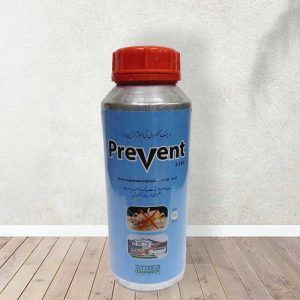
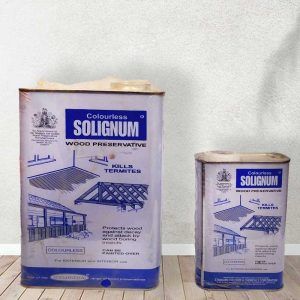
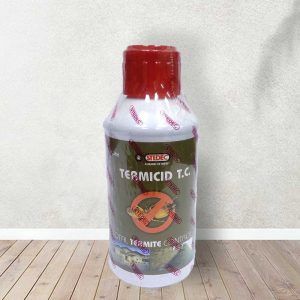






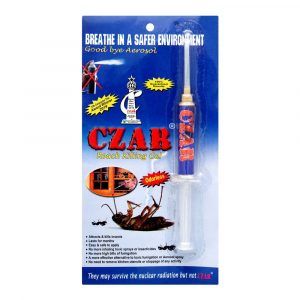 Czar Roach Killing Gel - Cockroaches Killer
Czar Roach Killing Gel - Cockroaches Killer 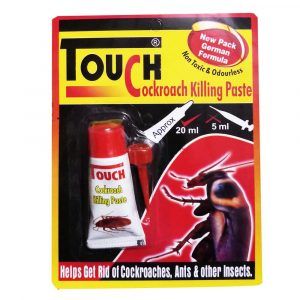 Touch Cockroach Killer Gel - Effective Against Kitchen Roaches
Touch Cockroach Killer Gel - Effective Against Kitchen Roaches 